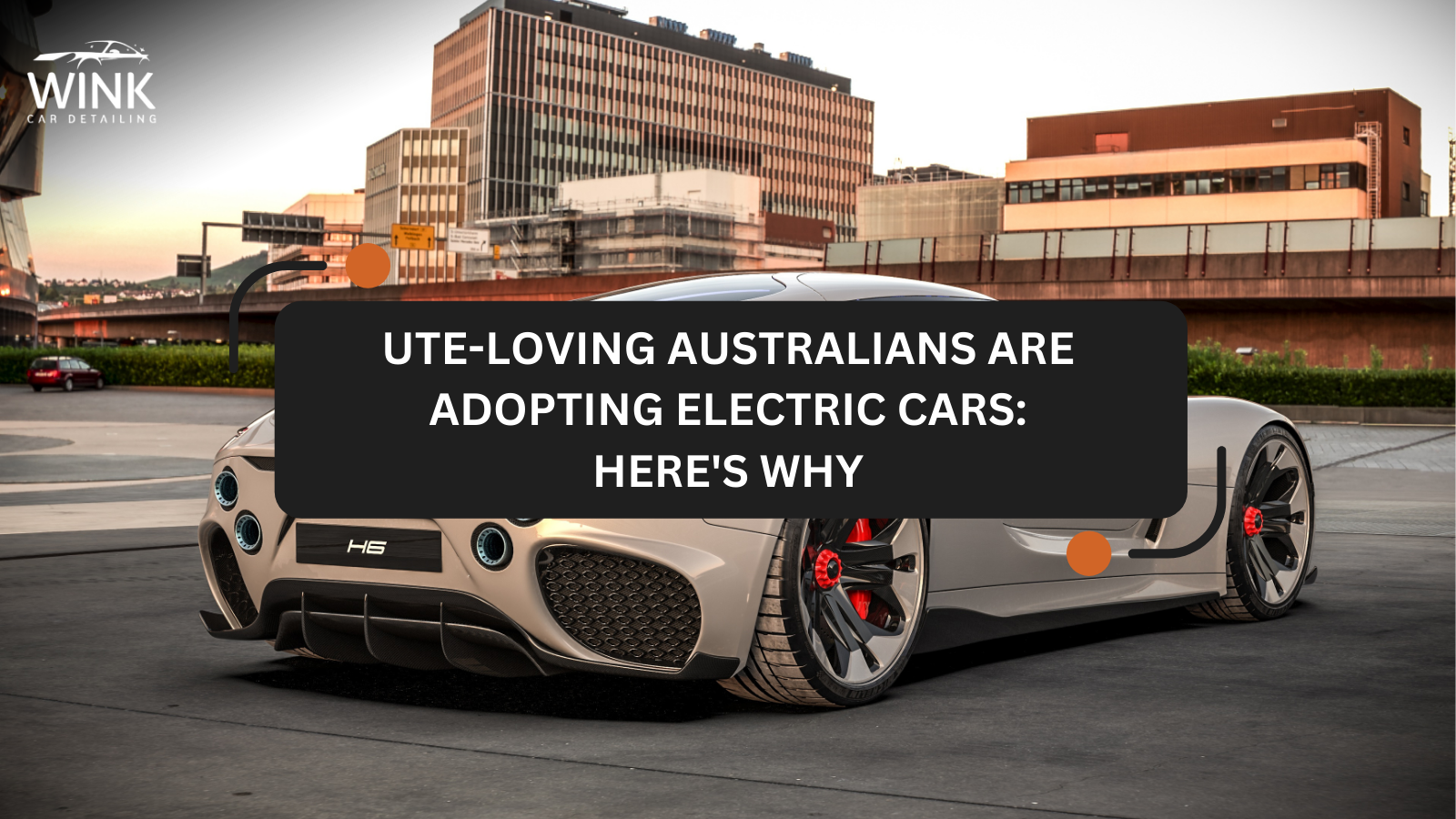UTE-Loving Australians Are Adopting Electric Cars: Here's Why
The interest in electric vehicles is growing among Australians. This is because the government is offering subsidies, technology is getting better, new electric car models are coming out, fuel prices are going up, and the government is starting to help out too. For example, they are getting rid of import taxes on some electric cars, changing tax rules to make electric cars more attractive, and investing money to build more places to charge electric cars. Recently, the government also talked about working with states to make rules and incentives for electric cars more consistent.
But even though more people want electric cars, there aren't enough of them available. This shortage could slow down the switch to electric cars in Australia. Hence, the government should keep promoting electric cars, improve the quality of charging stations, and look for ways to get more electric vehicles on the road.
Around the world, there's a huge demand for electric vehicles (EVs), and not just in Australia. Every company that makes EVs is struggling to keep up with this global demand. The issue gets worse by a shortage of semiconductors, which are necessary components of electric vehicles.
In Australia, we've been quick to adopt solar panels for our homes, and in the recent general election, there was a strong vote for action on climate change. However, before the pandemic, we didn't show much interest in electric cars. In 2019, out of over a million new cars sold, there were fewer than 10,000 EVs. But that was then, and this is today. The list of those who want to purchase electric cars is becoming longer and might take months.
This change in perception of electric vehicles is consistent with a larger worldwide trend. As technology develops and is concerned about climate change increase, more people are choosing electric cars as a sustainable form of transportation.
Tesla's Impact on Australia's Electric Car Revolution
Tesla, led by Elon Musk, is often criticized as a trendy of personality. In the face of this, Tesla cars are highly praised and have played a big role in the rise of electric vehicles (EVs). More than half of all EVs sold in Australia are from Tesla.
Mark Tipping, a former motorcycle racer and car enthusiast, unexpectedly became a fan of EVs. He has driven 430,000 kilometers in Teslas since buying his first one in 2014. Tipping, now president of the Tesla Owners Club of Australia, never saw himself as an environmentalist, but he's changed his tune. He's currently on a 6000-kilometer road trip across Australia in an EV, promoting renewable energy resolutions.
According to Tipping, owning an EV has saved him at least $50,000 compared to petrol cars. EVs, like Teslas, work similarly to regular cars but are powered by electricity stored in a battery. While EV motors are light, batteries are heavy and take longer to charge than filling up a petrol tank.
Driving Toward Sustainability
Professor Bruce Mountain, director at the Victoria Energy Policy Centre, explains that electric vehicles (EVs) are much more efficient than traditional cars. While regular cars lose about three-quarters of their energy as heat and noise, EVs only lose around 10% as heat. This implies they can use more environmentally friendly energy sources like wind and solar power, making them crucial for reducing carbon emissions.
Mountain, a 53-year-old economist and engineer, became passionate about combating global warming 15 years ago. He is currently the director of an energy associated research institute. According to Mountain, switching to battery powered cars will help customers as well as the environment. He now drives a Mitsubishi plug-in hybrid, but he plans to eventually convert to a completely electric car.
He highlights the advantages of EVs: they may be more expensive to buy but are cheaper to run, offer a smooth driving experience with instant torque, and are quiet and flexible. Even though being relatively new compared to traditional gasoline engines, EV technology is rapidly improving, and the cost of renewable energy is decreasing, promising a brighter future for electric vehicles.
Australia's Vehicle Taxation Dilemma
Norway achieved high electric vehicle (EV) usage by offering incentives for EVs and imposing strict regulations on patrol cars. Critics of EV subsidies often overlook the substantial support given to the fossil fuel industry by governments worldwide. The International Monetary Fund reported that global fossil fuel subsidies reached $US5.9 trillion in 2020, expected to rise further by 2025.
Australia's tax system favors large and inefficient vehicles, like dual cab UTEs. These vehicles often receive exemptions from Fringe Benefits Tax (FBT) despite being used for personal transportation rather than commercial purposes. Bruce Mountain from the Victorian Energy Policy Centre highlights the high demand for UTEs in Australia, which is among the highest globally.
Australia's rules about how much pollution cars can make are not very strict. This means car companies can bring their older, dirtier cars here. It adds to pollution in our country. Mountain thinks it would be better to encourage electric cars and cars that use less fuel, while making it more expensive to drive cars that use a lot of petrol.
The Rise of Electric Cars in Australia
Australia doesn't have many choices for new electric cars, and most of them come from China. Chinese factories make nearly half of all electric cars worldwide. These include popular brands like Tesla, Polestar, Volvo, MG, and BMW's iX3. The quality of electric cars made in China is good, sometimes even better than those made in the US.
Electric cars are changing how cars are sold. They appeal to people who are good with technology, and many car companies are selling them directly to customers, like Tesla does. This is good, especially for women who sometimes feel treated unfairly by traditional car salespeople.
As more car companies make electric cars, the prices should go down because they will make more of them and compete with each other. The technology for electric car batteries is also getting better, which should make electric cars go farther on a single charge and charge faster.
Even though there are still many petrol cars on the road in Australia, experts say we should keep using them until they are old, about 10 to 12 years. Then, when we need a new car, we should think about getting an electric one. Many people are considering electric cars for their next purchase, especially after trying out different types of cars for their job.





